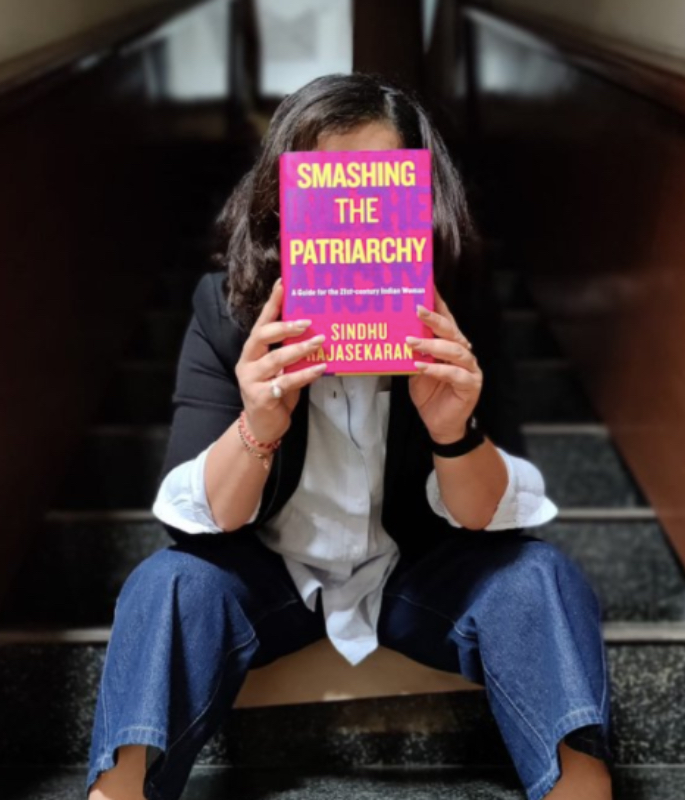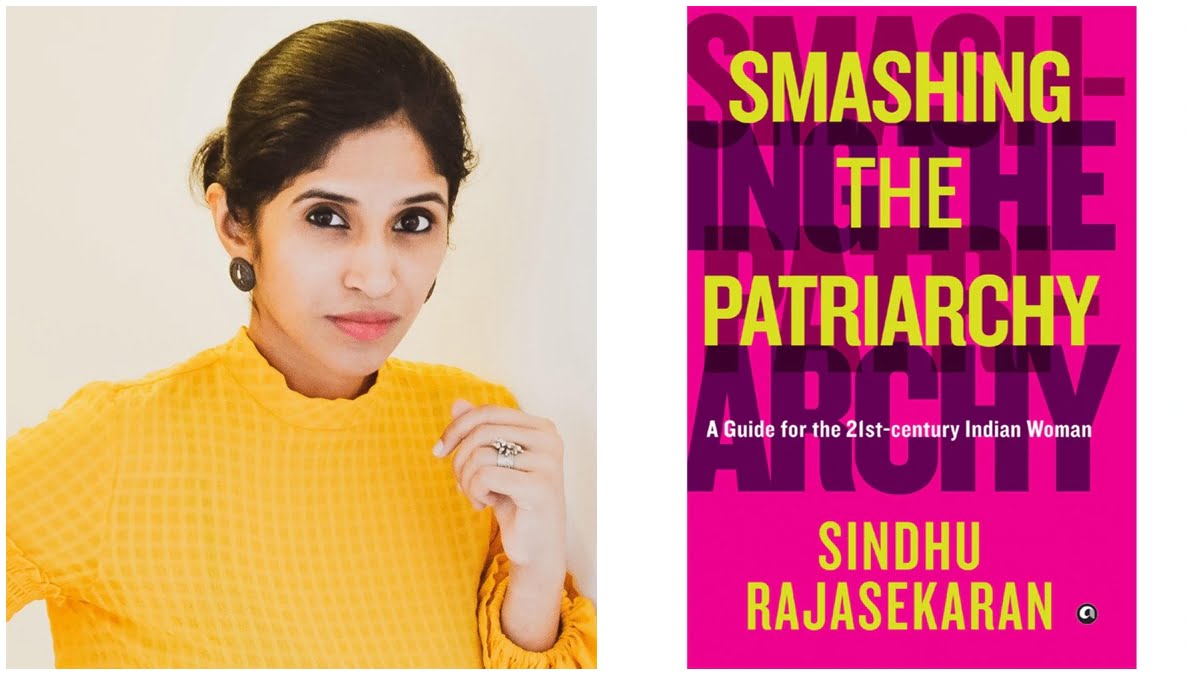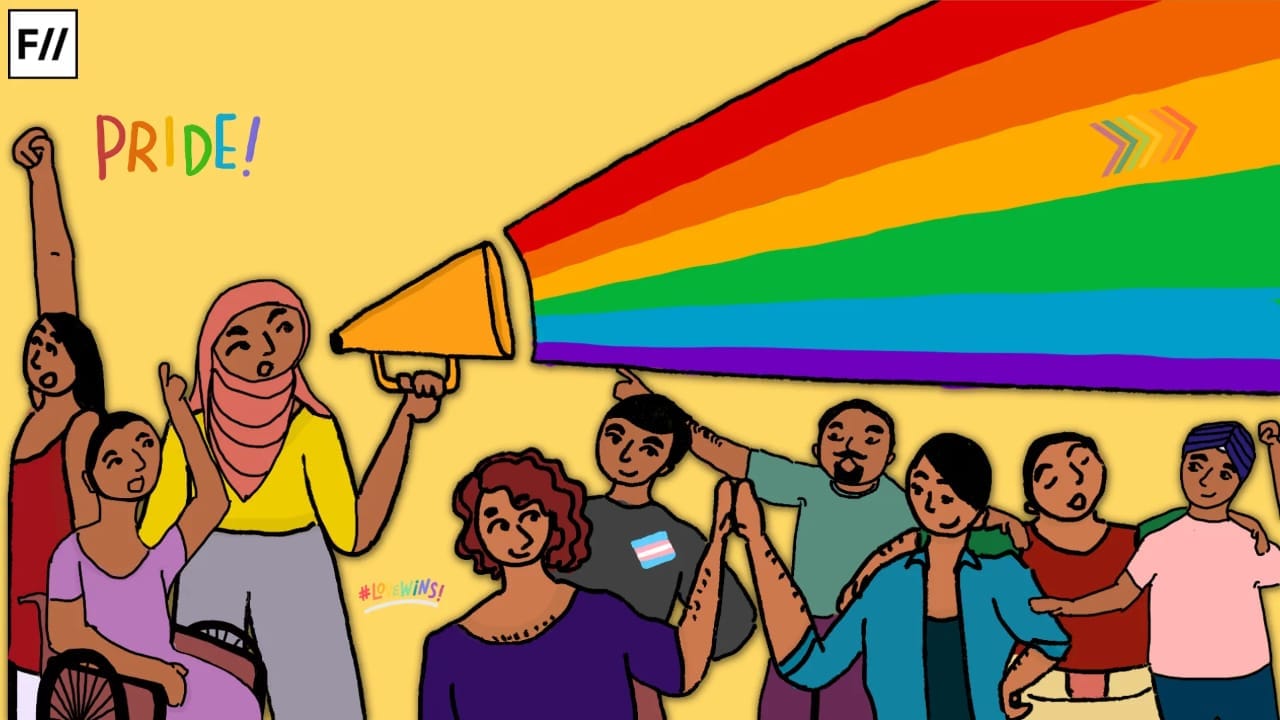“Not to mention, female bitchiness is a real thing.”
“At the end of the day, we all try to benefit from the patriarchy one way or another.”
“Tera feminism mere feminism se zyaada safed nahi hai.” (“Your feminism is not fairer than mine.”)
These are all statements from the book named ‘Smashing The Patriarchy: A Guide For The 21st Century Woman’, authored by Sindhu Rajasekaran and released by Aleph Book Company in November 2021.
I had been eagerly awaiting to read a book on patriarchy, on how to fight this colossal challenge, on how to make sure it is uprooted so radically that for once in my life I feel emancipated. When I commenced reading Smashing The Patriarchy, I had a colourful highlighter and a notes window open for I was carefully underlining each line which stood out and taught me how to comprehend myself better. The book starts off well; questioning the discords of dissent, ideologies and representation, and I was hoping to learn from it throughout. Except it gradually started getting confusing, then dwindling, and then, well I finally started noting down and noticing the bizarre takes on each page.
Smashing The Patriachy starts off well; questioning the discords of dissent, ideologies and representation, and I was hoping to learn from it throughout. Except it gradually started getting confusing, then dwindling, and then, well I finally started noting down and noticing the bizarre takes on each page.
Rajasekaran has made myriad controversial and even more bizarre arguments in this book which apparently aims to smash sexism in the twenty-first century. Ironically, the author has endeavoured to further the case of dowry stating imaginary advantages that it might bring. She has blamed feminists for fighting for just trials which are delayed by the patriarchal system, and almost justified the encounter killings of state-declared rapists whose crimes hadn’t been proven in court.
She has asked women not to expect men to not look at them without sex in their eyes, she has ill-explained sex and gender, she has said that a woman being capitalist or anarchist has a negligent bearing on her feminism, she has analysed between her choices of smashing patriarchy completely and between holding it high enough to derive powers from it, she has said that anti-corporate and anti-state agenda do not necessarily enrage all women, and above all, she has countered her own self on so many pages that after a point of time one only wonders what to take out of this book.
Also read: Book Review: Indu Menon’s ‘The Lesbian Cow And Other Stories’ Is Stained By An Excess Of Trauma Porn
The author of Smashing The Patriarchy has drawn false equivalence between what she jibes as “proper feminists” to self-appointed conservative protectors of tradition. The language often takes on the garb of a cool millennial lingo, such that the author seems to forget that purposely incorrect grammar becomes uncool after a point. Descriptive statements such as “gori (fair) women with skin like butter” and qualitative adjectives such as “chee chee” add zilch to the erroneously framed and fabricated arguments.
By stating that “humanistic capitalism” is a choice women have; the author negates the basic tenets of ideological reasoning. She has seemingly justified elite women deriding labourers and gone on to celebrate problematic takes such as performing emphasised femininity to gain advantages. She has criticised colonialism and then built on how the times before them were good. She has said that the marginalised socialise and breed within themselves as if they do it by choice and are not relegated to do so by the system created by oppressor castes. In Smashing The Patriarchy, she asks women to not make everything a gender-based issue. She establishes both believers and non-believers as extremists.

Since the beginning of Smashing The Patriarchy, there is a normalisation of the elite and privileged women, with upper class, upper-caste, cis het-ness being taken as the default identity of the women. And when the author implies that “Most women do x…” or “Most women are y…” and then goes on to speak on something exclusive to elite women, it only shows a wilful placing of the elite as the default in a country where most women belong to the marginalised communities.
Since the beginning of Smashing The Patriarchy, there is a normalisation of the elite and privileged women, with upper class, upper-caste, cis het-ness being taken as the default identity of the women. And when the author implies that “Most women do x…” or “Most women are y…” and then goes on to speak on something exclusive to elite women, it only shows a wilful placing of the elite as the default in a country where most women belong to the marginalised communities.
The dissociation from the ideologies of leftism and socialism and the upholding of capitalist structures manifest the most elementary flaw in her gauging of feminism, and if at all the book aims to smash the patriarchy, it does not for all women. Statements such as how being postfeminist or conservative do not affect the sex lives of women reflect the trivialisation of the ground reality of this country.
The author does mention Dalit, Bahujan and Adivasi (DBA) women who are fighting against patriarchy, except she does it only when she has to quote them on caste. On almost every other issue from fashion to movies; the conversation is only around and about upper-caste, upper-class women, and the opinion of DBA women has not been considered paramount, which in itself is casteist.
Also read: Gender And Neoliberalism In Arundhati Roy’s The Ministry Of Utmost Happiness
While the author of Smashing The Patriarchy has called out sexism, casteism and classicism on the surface level, she has again perpetuated them instead of deconstructing them. She has stated English as a privilege without mentioning whether it has been earned by oppressing or earned despite oppression. While she has mentioned 50 per cent reservation for women; she has not mentioned population-wise reservation for SC, ST and OBC women
While the author of Smashing The Patriarchy has called out sexism, casteism and classicism on the surface level, she has again perpetuated them instead of deconstructing them. She has stated English as a privilege without mentioning whether it has been earned by oppressing or earned despite oppression. While she has mentioned 50 per cent reservation for women; she has not mentioned population-wise reservation for SC, ST and OBC women. And of course, Smashing The Patriarchy has Brahmin women speaking about their regions as if they are the representatives. The author has rightfully called out the patriarchy of marginalised men. However, she has trivialised how women are conditioned by patriarchy and the celebration of beauty and ancestral beauty practices are not always possible for marginalised women.
All in all, Smashing The Patriarchy confuses more than it convinces. More than reasoning about the nuances and complexities, it only perplexes one over and over again, contradicting itself on the same page and countering its own base.
About the author(s)
Ankita Apurva was born with a pen and a sickle.







“She has asked women not to expect men to not look at them without sex in their eyes”
Meaning unclear. Please rephrase.